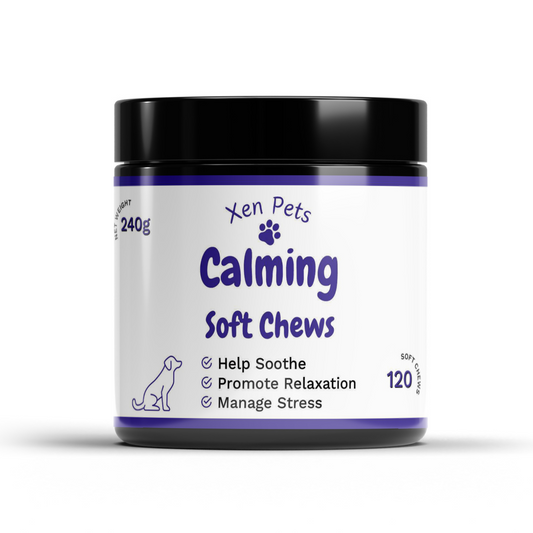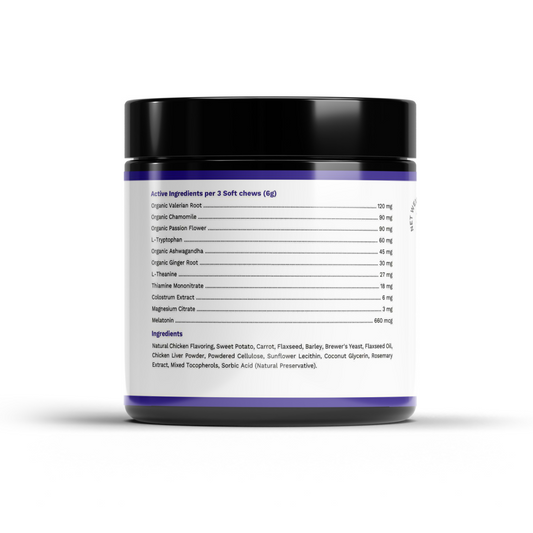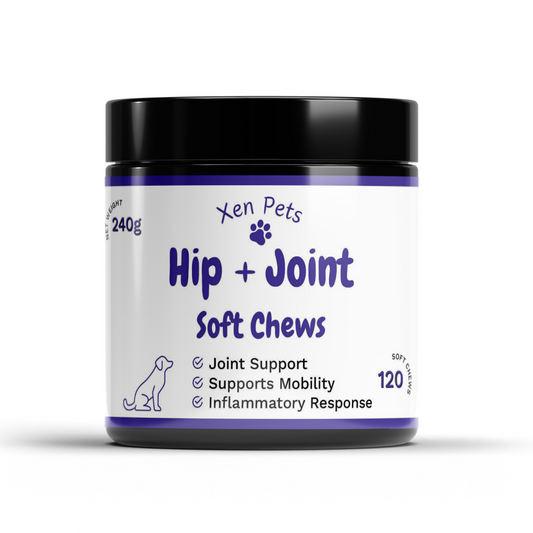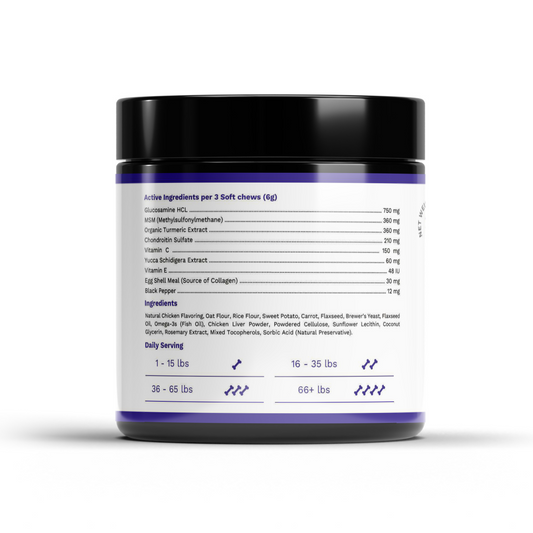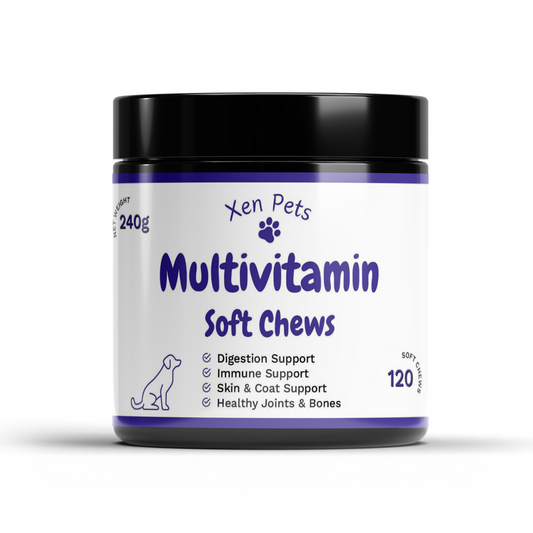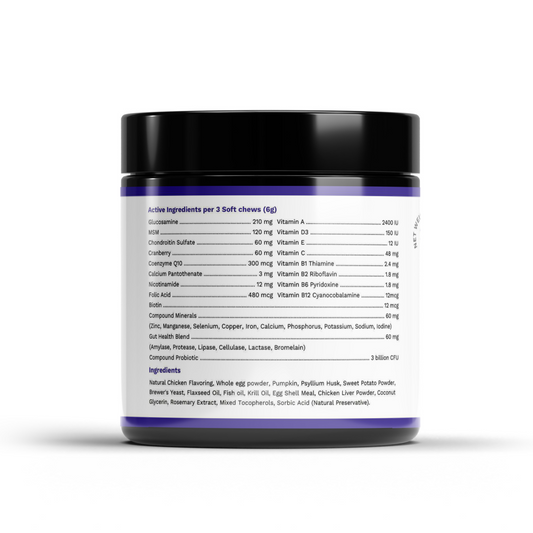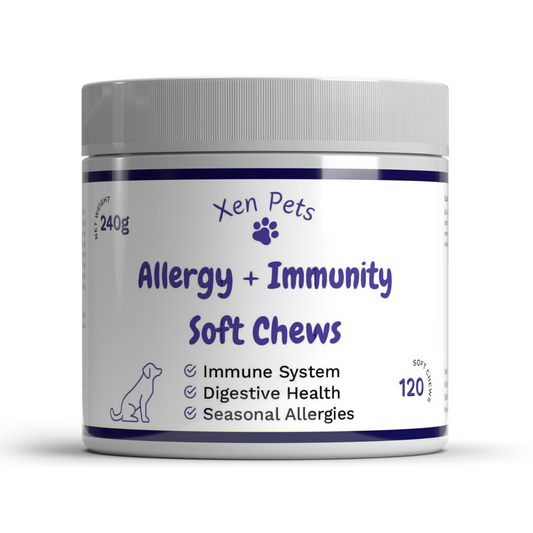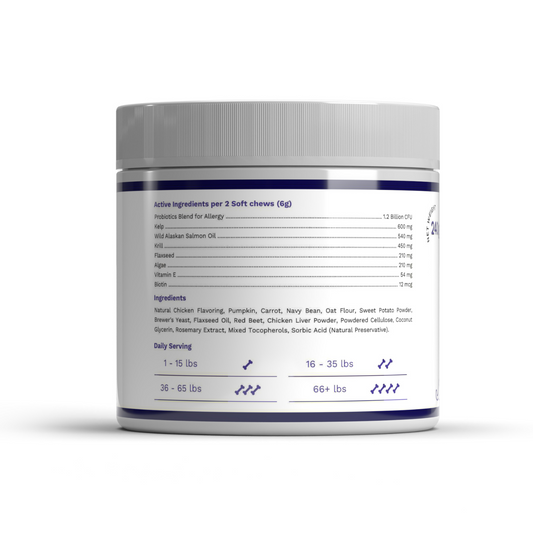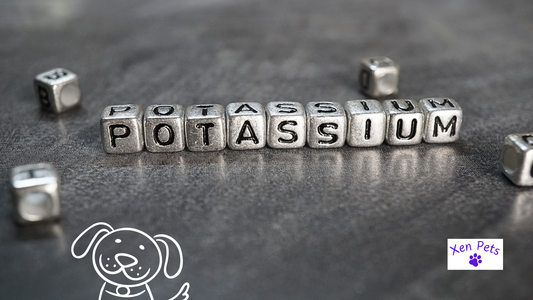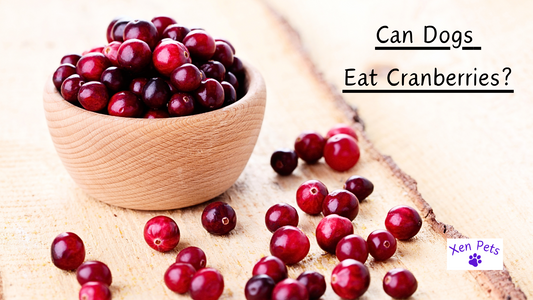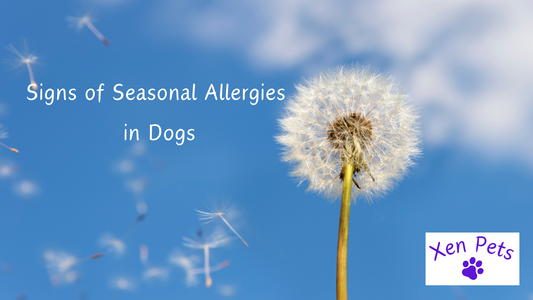Is Vitamin C Good for Dogs?
Tory JohnsonShare
Vitamin C is an essential part of your dog’s daily diet and has been proven to have numerous health benefits.
Not only is it important in supporting the overall immune system, but Vitamin C can also be beneficial when it comes to cardiovascular health, healthy digestion, and improved skin and coat health.
Understanding how much Vitamin C your dog needs can help keep them happy and healthy long-term.
In this article, we'll discuss the many benefits of adding Vitamin C into your dog's diet as well as provide guidance on dosage amounts based on age group and size. Let's take a closer look!

What is Vitamin C?
Vitamin C, also known as ascorbic acid, is a crucial nutrient for dogs that can help keep their immune system healthy and their bones strong.
As a water-soluble vitamin, the nutrients are distributed throughout your dog's body tissues, providing essential support for overall health.
While dogs can produce their own Vitamin C, supplementation may be necessary in certain situations.
Types of Vitamin C
What some may not realize, however, is that there are multiple forms of Vitamin C found in these supplements. These can include ascorbic acid, calcium ascorbate, and sodium ascorbate, all of which have slightly different properties and benefits.
- Sodium ascorbate
- Calcium ascorbate
Is Vitamin C good for dogs?
Vitamin C is great for dogs and is essential for their overall health, and a deficiency can have serious consequences.
Although it's a naturally occurring vitamin, ensuring your pet has the right amount is crucial.
While deficiencies in Vitamin C are rare in dogs, knowing the signs and symptoms can help identify any problems early on.
Much like in humans, a Vitamin C deficiency in dogs can lead to health complications such as a weakened immune system or slow wound healing.

6 Side effects of Vitamin C deficiency
- Tooth loss
- Lethargy
- Limping
- Spots on skin
- Bloody gums
- Bad breath
Vitamin C dosage for dogs
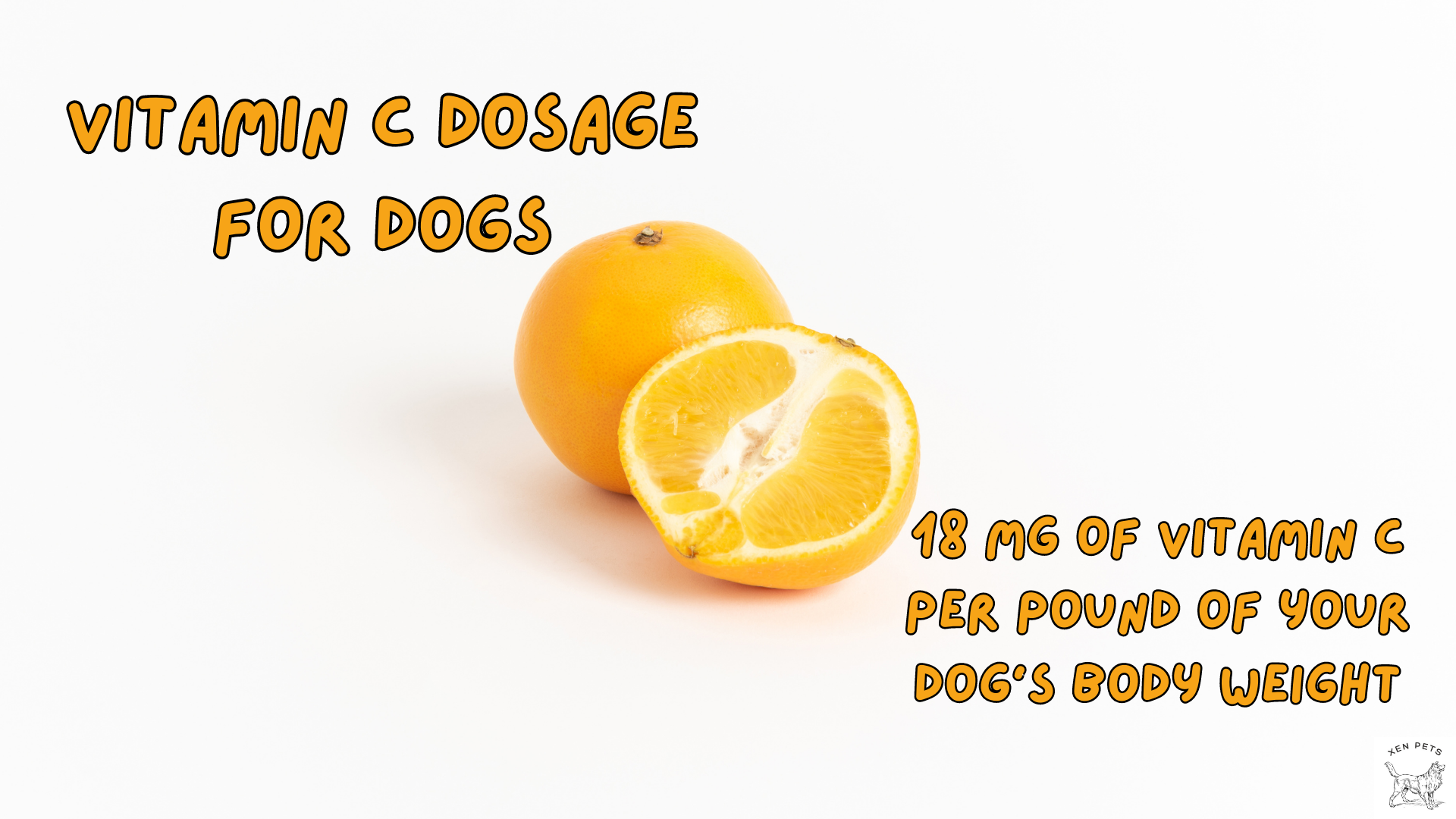
To ensure your dog is getting the right amount, start with 18 mg of Vitamin C per pound of your dog's body weight.
Be sure to distribute the dose throughout the day and pair it with food to increase absorption.
If you're unsure whether your dog is getting enough, a simple blood test from your veterinarian can determine if they have a deficiency.
Vitamin C for dogs benefits
Vitamin C plays an important role in boosting your dog's immune system, promoting heart health, and even reducing the risk of certain types of cancer.
Additionally, Vitamin C can help protect against the damaging effects of free radicals, which can cause inflammation and lead to a variety of health problems.
1. Can boost your dog's immune system

Vitamin C is a powerful antioxidant that helps support healthy immune function by protecting your dog's cells from oxidative stress and inflammation.
Although healthy dogs are able to produce their own Vitamin C internally, factors like stress, illness or injury can increase the body's need for the nutrient.
2. Repairs body tissue
Vitamin C plays a vital role in creating a protein that builds body tissues. This important protein synthesis process is particularly beneficial for growing puppies, who need all the help they can get to develop strong bones, muscles, and organs.
Lastly, Vitamin C is also helpful in healing wounds in older dogs, contributing to a faster and more complete recovery.
3. Fortifies teeth, bones, and joints
Vitamin C can help improve iron absorption. Not only does Vitamin C aid in the absorption of important nutrients like iron, it also plays a crucial role in keeping your dog's teeth and bones strong. This is especially important for some dog breeds that are prone to degenerative joint disease, which can result in joint pain and mobility issues.
If your dog is at risk for these issues, talk to your vet about Vitamin C supplements to help keep them healthy and happy.
Can Vitamin C be bad for dogs?
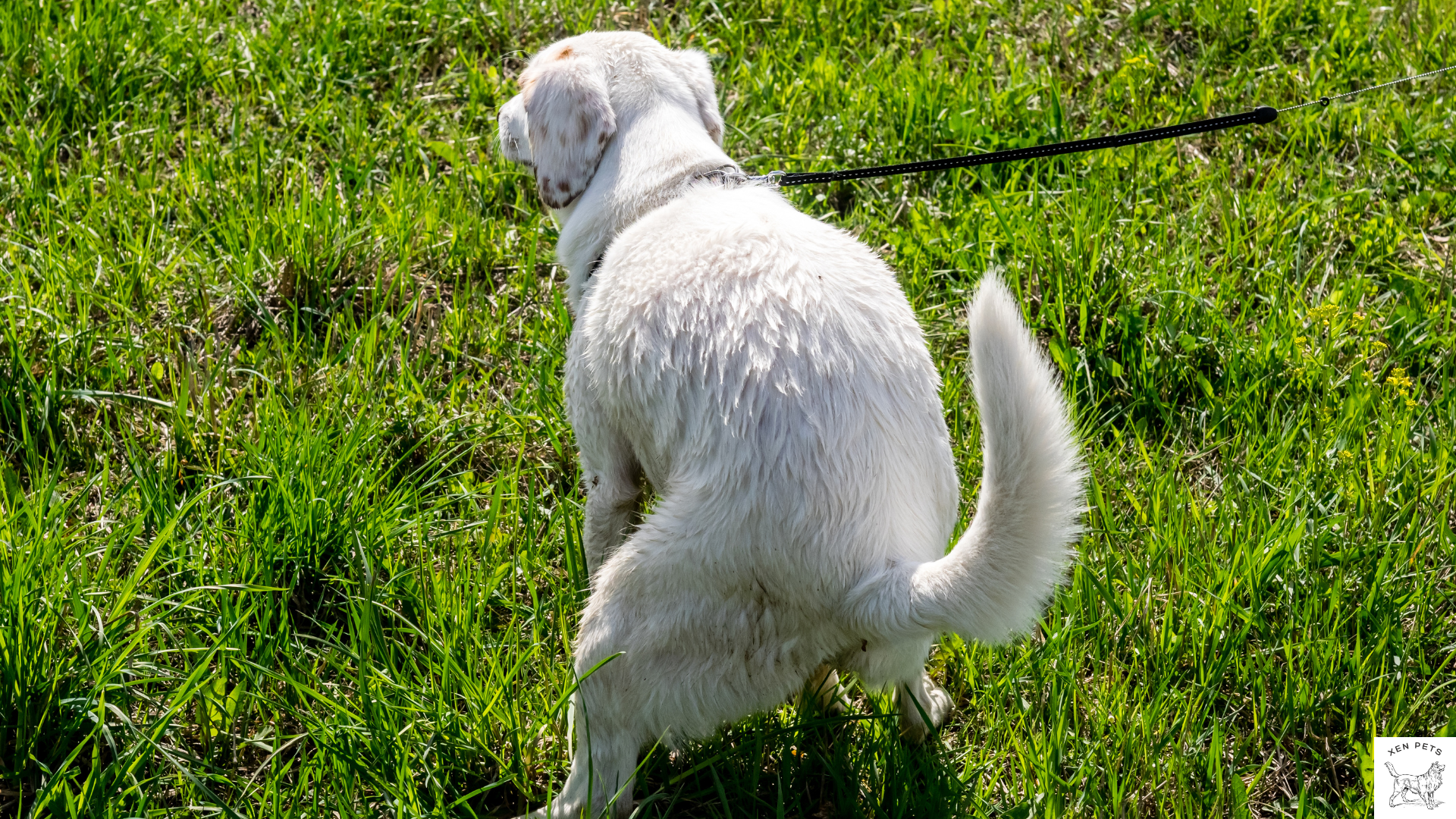
It's common knowledge that Vitamin C is an essential nutrient that our bodies need to stay healthy. However, it's important to keep in mind that too much of a good thing can sometimes be harmful.
In the case of Vitamin C, overloading your dog's system with too much can lead to a range of gastrointestinal problems such as diarrhea, bladder stones, and urinary tract infections.
While it's important to make sure that you're getting enough Vitamin C in your diet, it's equally crucial to remember that moderation is key. Too much Vitamin C can do more harm than good.
The bottom line
In conclusion, Vitamin C is a vital nutrient for a dog's daily diet.
There are several benefits of adding Vitamin C into your dog's diet such as supporting the overall immune system, promoting cardiovascular health, healthy digestion and improved skin and coat health.
Keep in mind that ignoring the recommended Vitamin C supplement dosage amounts based on your dog’s size and age can be detrimental to their health.
Taking care of your dog and providing them with all necessities they need to stay strong and healthy should be a priority!
Be sure to provide your dog with a balanced diet sufficient in Vitamins and minerals to keep them in their absolute best shape of all time.

